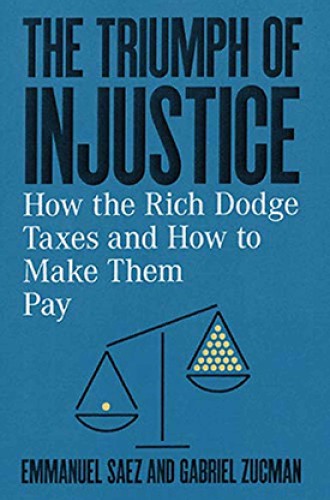How wealth and unjust tax policy erode democracy
Emmanuel Saez and Gabriel Zucman distill a complex topic into manageable takeaways.
If you pay close attention to the news or social media, you may have heard recently that in 2018, for the first time, the 400 richest Americans paid a lower average tax rate than those in the bottom half of the income distribution. (Yes, you read that correctly.) If you think that sounds unfair, you are not alone: as I write, the Democratic presidential primary is in full swing with candidates floating different policy proposals that would increase taxes on the wealthy and expand social services for the poor and middle class.
Some are content to leave the details of these plans to the policy wonks. But others want to engage more deeply with this national debate. What is the full story behind oft-quoted stump speech statistics? What is the historical context of our current income and wealth inequality? Are new proposed policies actually practical or merely political pipe dreams? Economists Emmanuel Saez and Gabriel Zucman, both professors at the University of California, Berkeley, tackle these questions head-on in their new book about income inequality and tax policy. Synthesizing groundbreaking academic research spanning the past decade (much of it their own), the authors distill a complex topic into manageable takeaways for anyone with a moderate tolerance for numbers and jargon.
Saez and Zucman, along with Thomas Piketty (whose 2014 magnum opus Capital in the Twenty-First Century received significant media coverage), have revolutionized modern scholarship on public finance. Their greatest contribution has been to collect and analyze previously unavailable data on income, wealth, and taxes, helping move the field from theory to practice. For example, to construct their marquee statistic about the wealthiest Americans paying a lower average tax rate than the working class, the authors account for not only the federal income tax but also payroll taxes, state income taxes, dividend and capital gains taxes, and even consumption taxes. Their goal is to grasp the entire economic picture, drawing a distinction between accounting-based measures of income and taxes and the true economic sense of these terms.





